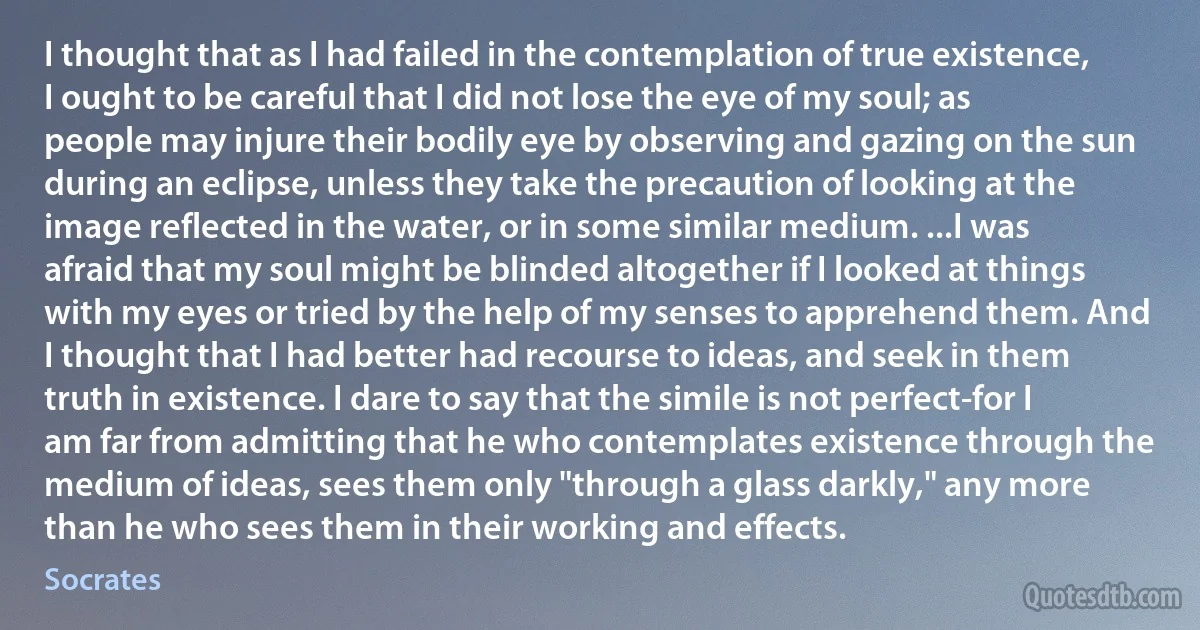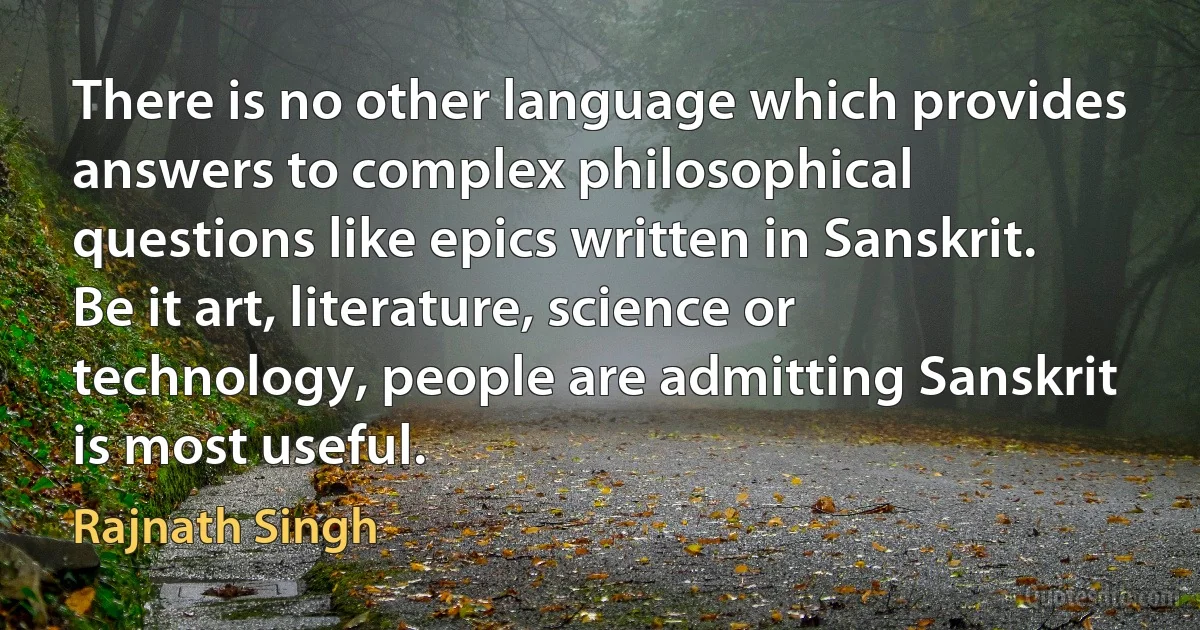Admitting Quotes - page 4
Now the compound or composite may be supposed to be naturally capable of being dissolved in like manner as being compounded; but that which is uncompounded, and that only, must be, if anything is, indissoluble. ...And the uncompounded may be assumed to be the same and unchanging, where the compound is always changing and never the same? ...Is that idea or essence, which in the dialectical process we define as essence of true existence-whether essence of equality, beauty, or anything else: are these essences, I say, liable at times to some degree of change? or are they each of them always what they are, having the same simple, self-existent and unchanging forms, and not admitting of variation at all, or in any way, or at any time?

Socrates
Optimism sprouts from the knowledge that you are in control of your own life, not your past and not those around you. Part of being in control is taking responsibility for how you feel. This means not just admitting to uncomfortable feelings but then examining your circumstances to see what can be done to change these feelings at the source.

Augusten Burroughs
Our military organisation remains a glorious manifestation of German political idealism; without admitting the fact, all our neighbours regret that they have not been able, some because of the inadequacy of their culture, others because of their extreme individualism, to imitate these institutions with complete success.

Heinrich von Treitschke
Give up pride for good during the holidays. This is where I've been especially stubborn. As I walk more and more in this path of Christianity, I see that letting my guard down and admitting that I don't want to be alone is far better than dealing with me, myself and I, who always seem to want to keep up appearances.

Monica Johnson
What most men do not know - and if they could know it, why could they be called on to believe it? - Is that this blue sky, though illusory as an optical error and belied by the vision of interplanetary space, is nonetheless an adequate reflection of the Heaven of the Angels and the Blessed and that therefore, despite everything, it is this blue mirage, flecked with silver clouds, that is right and will have the final say; to be astonished at this amounts to admitting that it is by chance that we are here on earth and see the sky as we do.

Frithjof Schuon
No one will deny or dispute the power of the Almighty to make such a communication, if he pleases. But admitting, for the sake of a case, that something has been revealed to a certain person, and not revealed to any other person, it is revelation to that person only. When he tells it to a second person, a second to a third, a third to a fourth, and so on, it ceases to be a revelation to all those persons. It is revelation to the first person only, and hearsay to every other, and consequently they are not obliged to believe it..... When I am told that the Koran was written in Heaven and brought to Mahomet by an angel, the account comes too near the same kind of hearsay evidence and second-hand authority as the former (Book of Exodus). I did not see the angel myself, and, therefore, I have a right not to believe it.

Thomas Paine



